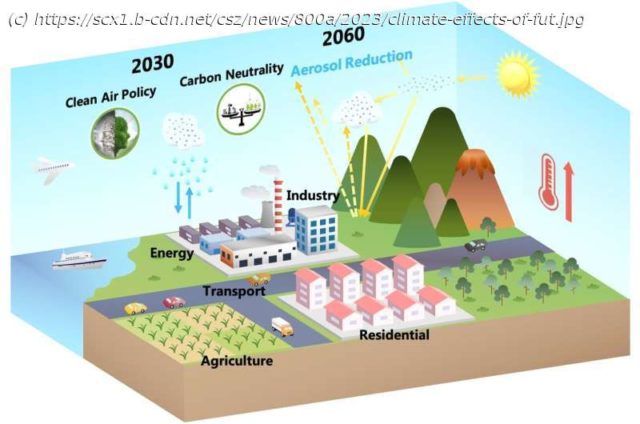When China pursues the carbon neutrality goal and the long-term air quality target, aerosol reductions will cause temperature increase over eastern China and enhance precipitation over southern China. Black carbon (BC) emission reduction can effectively mitigate the warming effect caused by other aerosol emission reductions under carbon neutrality.
When China pursues the carbon neutrality goal and the long-term air quality target, aerosol reductions will cause temperature increase over eastern China and enhance precipitation over southern China. Black carbon (BC) emission reduction can effectively mitigate the warming effect caused by other aerosol emission reductions under carbon neutrality.
As the largest developing country and a significant contributor to carbon dioxide (CO2), China has announced its ambitious climate commitment to pass carbon peak before 2030 and achieve carbon neutrality by 2060. Aerosols can perturb Earth’s radiation balance and influence climate through interacting with radiation and clouds. In the context of pursuing carbon neutrality in China, aerosol reductions related to air pollution control policies are very likely to have a great impact on the climate.






